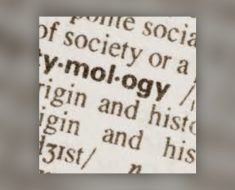While the impressive conversational abilities of AI chatbots like ChatGPT showcase rapid technological advancement, trusting them with something as important as tax preparation is a recipe for trouble. Tax laws are complex, ever-evolving, and nuanced – an area where chatbots’ limitations become glaringly obvious.
Let’s delve into the reasons why you should steer clear of relying solely on AI chatbots for tax preparation and explore the more reliable alternatives available.
Understanding the Nuances of Tax Laws


Tax preparation entails far more than inputting numbers into a form. It necessitates in-depth knowledge of complex and frequently changing tax laws. AI chatbots, while capable of processing information, often lack the ability to grasp the intricacies and interpretations of tax regulations. They may miss subtle rules or fail to maximize your potential deductions and credits.
The Importance of Individualized Attention


Your tax situation is unique, with a range of variables influencing your return. AI chatbots operate on a more generalized level and could miss factors specific to your circumstances. These oversights might lead to costly miscalculations, interest, penalties, or worse – an audit from the IRS.
The Human Touch: Recognizing the Value of Tax Professionals


Certified tax professionals possess years of specialized training and real-world experience. They stay updated on the latest tax code changes, understand how to interpret the law in various situations, and can offer strategic advice tailored to your financial circumstances. AI chatbots simply cannot replicate this level of expertise.
Tax Software: A Smart Alternative Instead Of Using AI Chatbots


Tax software offers an excellent middle ground. User-friendly interfaces and step-by-step guidance streamline the filing process, while built-in calculations and error checks minimize mistakes. These programs are designed to handle a wide spectrum of tax situations and offer additional resources like tax guides and access to professional assistance if needed.
Key Takeaways
- AI chatbots are not replacements for tax professionals. Their strengths lie elsewhere, and tax preparation demands a level of understanding they cannot guarantee.
- Tax regulations are complicated and constantly changing. Chatbots may struggle to keep up with the complexities or offer the depth of knowledge necessary for accurate filing.
- Your personal tax situation is unique. Generic chatbot responses may overlook crucial factors and result in missed deductions and unforeseen liabilities.
- Tax professionals offer invaluable expertise and personalized service. They possess the deep understanding of tax laws essential for optimizing your return while minimizing the risk of errors or audits.
- Tax software provides a user-friendly and cost-effective solution. It simplifies the filing process, reduces mistakes, and offers valuable resources, making it a great choice for many taxpayers.
Finding the Right Tax Preparation Solution
When choosing a tax preparation method, consider these factors:
- Complexity of your tax return: Simple tax situations and a basic understanding of tax concepts might make online tax software a sufficient option.
- Comfort level: If you prefer hands-on guidance and personalized recommendations, working with a tax professional provides peace of mind.
- Budget: Tax professionals offer varying levels of service with associated fees. Tax software presents a more affordable choice for straightforward tax filing.
In Conclusion


AI chatbots like ChatGPT represent fascinating technological advancements, but they fall short when it comes to the critical task of tax preparation. Don’t put your financial well-being at risk. Instead, leverage the strengths of tax software or explore the expertise of a qualified tax professional to ensure your taxes are prepared accurately and in full compliance with the law.
Please note, that the author may have used some AI technology to create the content on this website. But please remember, this is a general disclaimer: the author can’t take the blame for any mistakes or missing info. All the content is aimed to be helpful and informative, but it’s provided ‘as is’ with no promises of being complete, accurate, or current. For more details and the full scope of this disclaimer, check out the disclaimer page on the website.





